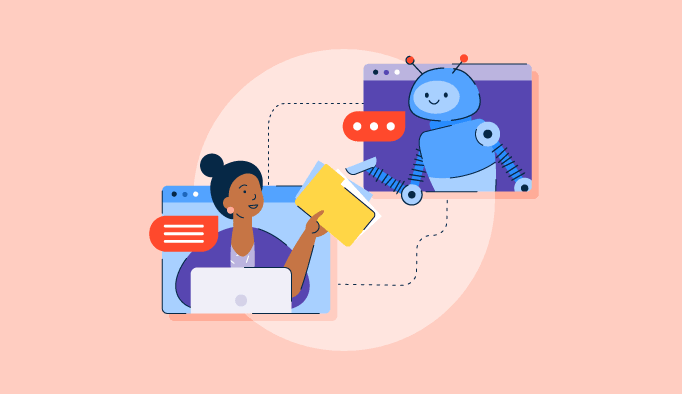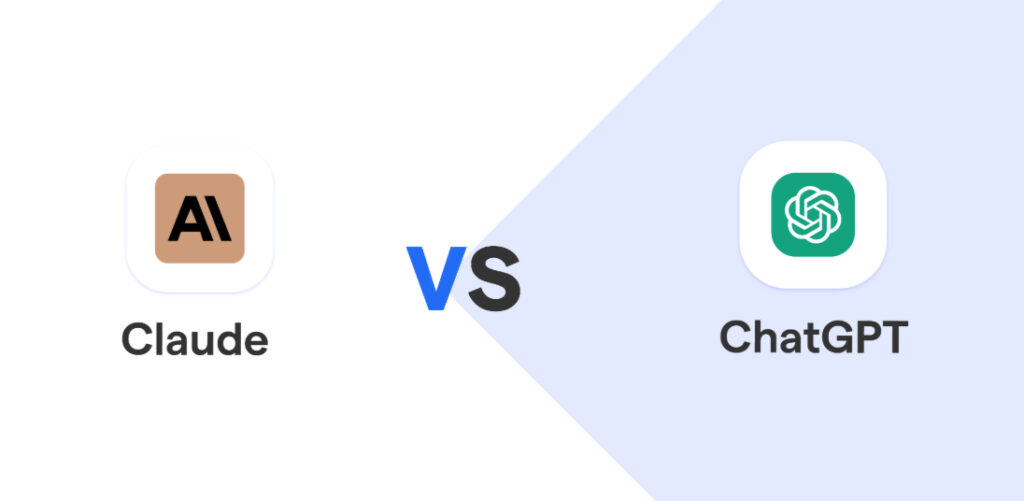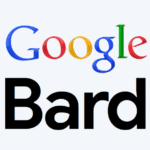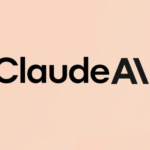Introduction
In today’s fast-evolving legal industry, AI writing tools like Claude AI and ChatGPT are becoming essential for legal professionals seeking efficiency, accuracy, and cost-effectiveness. As law firms and in-house teams increasingly adopt AI for legal writing, the question arises: which tool delivers better results—Claude AI or ChatGPT?
Legal writing demands more than just fluent language; it requires precision, compliance, and a formal tone that aligns with jurisdictional standards. From drafting contracts and privacy policies to summarizing case law and writing legal memos, the accuracy of AI-generated content has a direct impact on legal outcomes.
Both Claude AI, developed by Anthropic, and ChatGPT, powered by OpenAI’s GPT-4 Turbo, have unique strengths. This article provides a detailed comparison focused on accuracy, tone, structure, and legal usability, helping legal professionals determine which AI tool is the best fit for their practice in 2025.
Overview of Claude AI and ChatGPT
In the competitive world of AI writing tools, two names dominate the legal and professional content space in 2025—Claude AI by Anthropic and ChatGPT by OpenAI. As organizations increasingly turn to AI for legal writing, understanding the unique features and foundational models of each tool is essential for professionals seeking the most accurate AI assistant for legal documents.
Claude AI, developed with a focus on ethical alignment and safety, uses Constitutional AI—a training framework designed to deliver more reliable, neutral, and context-aware responses. It has gained recognition as one of the best AI tools for lawyers, especially for drafting contracts, summarizing legal texts, and generating formal correspondence. Claude’s structured responses and low hallucination rate make it particularly appealing in fields like compliance, corporate law, and policy drafting.
On the other hand, ChatGPT, powered by GPT-4 Turbo, remains a powerful and versatile tool for legal professionals. Known for its conversational fluency and expansive knowledge base, ChatGPT supports a wide range of tasks from writing legal memos to reviewing policies. Its rich ecosystem of legal plugins, integration with code interpreters, and access via platforms like Microsoft Copilot give it a strong edge in legal tech workflows.
While both tools serve as capable legal AI assistants, their training philosophies, output structure, and user control mechanisms make them distinct. Understanding these differences is crucial when selecting the most accurate AI for legal writing in today’s digital-first legal environment.
Legal Writing Requirements
Legal writing is a specialized discipline that demands precision, clarity, formality, and compliance with jurisdictional standards. Whether drafting a contract, policy document, legal memorandum, or client advisory, the language must be structured, accurate, and free from ambiguity. In this context, the rise of AI tools for legal writing presents new opportunities—and challenges—for law firms, legal professionals, and in-house counsel.
One of the most critical aspects of formal legal documents is factual and legal accuracy. AI-generated content must not only be grammatically correct but also align with current laws, statutes, and precedents. Unlike general content creation, legal writing cannot afford “hallucinations” or factual errors. This is where the performance of legal AI assistants like Claude AI and ChatGPT is put to the test.
Equally important is the tone and structure. Legal writing must maintain a neutral, objective voice, avoiding informal or speculative language. Consistency in terminology—such as referencing “party of the first part” or using statutory phrases—is non-negotiable. The AI must understand and replicate legal syntax, including conditional clauses, citations, and defined terms.
Additionally, legal writing often varies by jurisdiction. A truly effective AI for legal writing must recognize these variations and adapt its content accordingly. For example, drafting a privacy policy for the GDPR in the EU differs significantly from writing one for CCPA compliance in California.
As law firms increasingly explore AI tools for legal content, evaluating how well these systems adhere to legal writing standards is essential. Accuracy, tone, jurisdictional awareness, and legal terminology are not just preferences—they are compliance-critical benchmarks that determine the usefulness and trustworthiness of AI-generated legal documents.
Comparative Analysis: Claude AI vs. ChatGPT in Legal Accuracy
In the legal profession, accuracy is everything. A minor error in a clause or a misinterpretation of legal precedent can lead to serious consequences. As AI legal assistants like Claude AI and ChatGPT gain popularity, evaluating their legal writing accuracy is crucial—especially for law firms, compliance officers, and corporate legal departments using AI for contract drafting or policy creation.

Understanding Legal Prompts
Claude AI demonstrates a deeper understanding of formal legal tone and structure. Its design under Constitutional AI prioritizes factual consistency, ethical boundaries, and well-balanced reasoning. When prompted to draft clauses (e.g., a non-disclosure agreement or indemnity clause), Claude tends to use standard legal templates and precise language—avoiding speculative or informal phrasing. It maintains logical flow, which is critical for enforceable legal documents.
ChatGPT, powered by GPT-4 Turbo, responds with detailed, fluent language, but can sometimes over-interpret prompts. While it excels in legal content summarization, it occasionally inserts generalized assumptions that could affect legal enforceability. It is, however, highly responsive to feedback and can improve accuracy with follow-up prompts—making it a strong tool for collaborative legal drafting.
📑 Clause-Level Output Comparison
Below is a sample comparison based on an AI-generated confidentiality clause prompt:
| Feature | Claude AI | ChatGPT |
| Tone and Formality | Strictly legal, conservative language | Slightly conversational unless instructed otherwise |
| Jurisdictional Sensitivity | Aware, but limited unless specified in prompt | Can reference jurisdictions more flexibly |
| Clause Structure | Well-organized, uses numbered sub-clauses | Organized but may vary in formatting |
| Factual Reliability | High – tends to avoid hallucinations | Moderate – occasionally inserts generic assumptions |
| Reusability for Real Contracts | High | Medium to High, with careful review |
Verdict on Legal Accuracy
For professionals needing compliance-grade legal content, Claude AI edges ahead in accuracy, tone, and reliability. ChatGPT, however, offers greater versatility and faster iterations, making it ideal for early drafts, research summaries, or client-friendly explanations.
Ultimately, the best AI for legal writing depends on the task. For precise clause generation, Claude is preferred. For rapid legal research and content drafting, ChatGPT remains a strong contender.
Real-World Usage & Legal Industry Adoption
The adoption of AI in legal practice is accelerating as law firms, in-house counsel, and compliance teams explore smarter ways to handle repetitive tasks and improve drafting efficiency. In this landscape, Claude AI and ChatGPT have emerged as two of the most widely used legal tech tools—each offering distinct strengths in real-world applications.
🏛 Claude AI in Law Firms
Claude AI has quickly gained traction in firms that prioritize accuracy, legal safety, and tone consistency. Its alignment-first approach and low hallucination rate make it ideal for generating client letters, contract clauses, HR policies, and regulatory content. Law firms appreciate Claude’s ability to maintain a formal legal tone with minimal prompting, making it especially useful for professionals dealing with sensitive legal documents. Many mid-size and enterprise-level firms are integrating Claude into their compliance automation workflows, citing its ease of use and reliability.
📚 ChatGPT for Legal Professionals
On the other hand, ChatGPT is more widely used for legal research assistance, summarizing case law, and creating first drafts of contracts, memos, or briefs. Its integration with Microsoft Copilot, legal-specific plugins, and platforms like JurisGPT has made it a favorite among tech-savvy lawyers and paralegals. ChatGPT’s conversational flexibility allows lawyers to iterate quickly, refine arguments, and brainstorm legal strategies—though final outputs often require manual validation.
Overall, while Claude AI is favored for formal legal writing, ChatGPT remains a go-to for dynamic legal content creation. Both tools are accelerating the legal industry’s digital transformation and reshaping how professionals engage with legal writing and documentation.
Limitations and Ethical Considerations
While Claude AI and ChatGPT offer impressive capabilities for legal writing, their use comes with notable limitations and ethical concerns that legal professionals must carefully consider.
⚠ Hallucinations and Factual Inaccuracies
One of the most pressing issues in AI-generated legal content is hallucination—where the AI produces responses that sound authoritative but are factually incorrect or legally invalid. Even slight errors in contract clauses, citations, or jurisdictional context can lead to serious compliance risks. Although Claude AI is generally more conservative and aligned, and ChatGPT is continuously improving its fact-checking, neither tool guarantees 100% legal accuracy without human oversight.
Legal Liability and Misuse
Using AI for drafting legal documents raises questions around liability. If a contract generated by AI contains flawed clauses that result in disputes, who is responsible—the tool’s developer, the user, or the firm? Law firms must ensure that AI is used strictly for supporting legal work, not replacing expert judgment. Both Claude and ChatGPT include disclaimers advising against relying on outputs for final legal advice.
⚖ Ethical Risks and Bias
AI models can inadvertently reflect biases in training data, potentially impacting the fairness and neutrality of legal outputs. This becomes particularly concerning in areas like employment law, criminal justice, or civil rights, where algorithmic bias can have disproportionate effects.
🔐 Data Privacy and Confidentiality
Feeding sensitive client information into an AI platform—especially in the cloud—raises concerns about data privacy and confidentiality. Although Claude and ChatGPT offer enterprise-grade protections, legal professionals must use these tools in environments that comply with GDPR, HIPAA, and relevant data protection laws.
In summary, while AI enhances legal productivity, it must be used ethically, cautiously, and with proper human validation.
Final Verdict: Which is Better for Legal Writing?
When it comes to AI accuracy in legal writing, both Claude AI and ChatGPT offer substantial benefits—but they serve different needs within the legal profession.
Claude AI excels in delivering structured, formal, and risk-averse content, making it highly suitable for legal contract drafting, policy writing, and compliance documentation. Its low hallucination rate and commitment to ethical alignment make it a preferred tool in settings where precision and tone are critical. For legal professionals seeking the best AI for legal documents, Claude’s ability to stay close to standard legal templates gives it a competitive edge.
In contrast, ChatGPT is the better choice for legal research summaries, first-draft memos, and interactive brainstorming sessions. Its conversational flexibility and extensive plugin support allow for faster iterations, making it ideal for solo practitioners, paralegals, or legal researchers working under tight deadlines.
Ultimately, if your priority is accuracy, tone consistency, and compliance-focused legal automation, Claude AI is the safer and more reliable choice. If you value speed, adaptability, and broader use cases across legal and non-legal writing, ChatGPT remains a powerful assistant.
For most law firms, using both tools strategically—Claude for formal content, ChatGPT for dynamic tasks—offers the best of both worlds in the evolving landscape of AI-powered legal writing.
Conclusion
As AI continues to reshape the legal landscape, tools like Claude AI and ChatGPT are becoming indispensable for enhancing productivity, streamlining workflows, and reducing drafting time. However, when it comes to accuracy in legal writing, the choice between the two depends on the specific needs of the legal task.
Claude AI stands out for its compliance-oriented tone, precision in contract drafting, and risk-mitigated outputs, making it a reliable tool for formal legal documentation. Meanwhile, ChatGPT offers exceptional value in legal research, memo drafting, and iterative content creation.
While neither AI should replace qualified legal professionals, both serve as valuable legal writing assistants when used responsibly. The key lies in understanding their strengths and applying them strategically.
As AI legal tools evolve, combining the accuracy of Claude AI with the versatility of ChatGPT will likely define the next era of AI-assisted legal practice.



